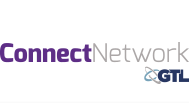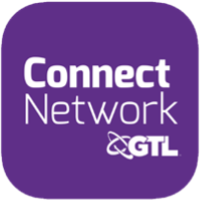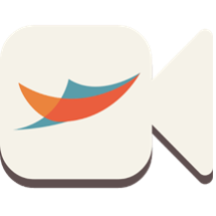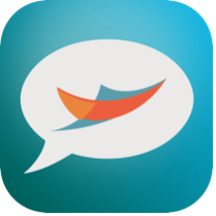


Welcome to your one-stop resource for connecting and communicating with your incarcerated loved one.
Life can be challenging when a friend or loved one is incarcerated — challenging for your loved one on the inside and for you on the outside. But it’s easier when you face it together.
For years, ViaPath Technologies (formerly Global Tel*Link Corporation, or GTL) and ConnectNetwork have provided phone calls and trust deposit services to you and your loved one incarcerated at California Department of Corrections and Rehabilitation (CDCR) facilities. In 2021, we expanded our services to include tablet services. Through our GettingOut platform, we now provide messaging with photo, video, and eCard attachments and video calling.
This page provides information on services you and your incarcerated loved one can use today.
- Get Started
- Phone Calling
- Trust Deposits
- Tablet Services
- Tablet Availability
- CDCR Provided Services
- Help
Get Started
CDCR institutions have access to services on both our ConnectNetwork and GettingOut platforms, you can start your account creation on either platform. Once you have a ConnectNetwork account, you can use the same credentials to log into GettingOut and vice versa.
ConnectNetwork is used for making deposits to your incarcerated loved one’s trust account.
GettingOut is used for communications tablet services:
- To send messages you will need the GettingOut application.
- To receive video calling you will need the GettingOut Visits application.
Links to both applications are in the applicable sections below.
After your account has been verified, you will need to add your facility (“California Department of Corrections and Rehabilitation”) and your incarcerated loved one as a contact.
Phone Calling
Effective January 1, 2023, CDCR provides no-cost domestic and international phone calls from all CDCR incarcerated adults to their family and friends.
No-cost phone calling includes both domestic and international calls.
Here are the guidelines on how you can receive no-cost phone calls from a person incarcerated with CDCR:
- Create a ConnectNetwork AdvancePay® account by visiting www.ConnectNetwork.com or by contacting ViaPath’s CDCR-dedicated customer service team at 1-866-607-6006.
- You do not need to place funds on the AdvancePay® account when setting it up.
- If you have an existing AdvancePay® account and have a remaining balance, you can request a refund by calling ViaPath’s CDCR-dedicated customer service team at 1-866-607-6006.
- NOTE: You may be required to add funds if you are receiving calls from a non-CDCR facility that ViaPath provides service to (example would be various California county facilities or out of state facilities).*
-
ConnectNetwork - Trust Deposits
ConnectNetwork provides a safe and convenient way for family and friends to make deposits into your CDCR incarcerated loved one’s trust accounts. Trust Deposits can be made using the following methods:
ConnectNetwork On-Line www.connectnetwork.com ConnectNetwork Mobile Applications Apps ConnectNetwork Phone 1-866-607-6006 -
GettingOut - Funding for tablet communications & sending textual messages, photos, and video messages.
GettingOut provides a safe and convenient way for family and friends to deposit funds into a GettingOut account used to pay for your sent messaging (textual, photos, and video messages) and video communications with a CDCR incarcerated individual. Please note that GettingOut is not used to conduct video calls. Please see information below on GettingOut Visits application you will need to receive video calls from your incarcerated loved ones.
GettingOut On-Line www.connectnetwork.com ConnectNetwork Mobile Applications Apps Getting Out Phone 1-816-516-0115 -
GettingOut Visits – Video calling application
Family and friends must use the GettingOut Visits application on your mobile device to receive a video call from your incarcerated loved one. Video calling cannot be accepted on computer devices. Below are the links to the mobile device applications. Important: In order for you to be notified of an incoming video call from your incarcerated loved one, the GettingOut Visit application must be open on your mobile device, and b) configured on your mobile device to allow for notifications. You will not be notified of an incoming video call if BOTH of these conditions are not met.
- The GettingOut Visits application must be installed on your mobile device.
- You must have an active GettingOut account with sufficient funds in your account.
- The GettingOut Visits application must be open and must have notifications enabled in order to be notified that you have an incoming video call. If the application is not open the notification will not be received. If you continue to have any issues, you can call the ViaPath CDCR-dedicated customer service team at 1-866-607-6006.
Trust Deposits
A trust account allows an incarcerated loved one to better adjust to life at their facility, as well as stay connected to the outside world. The money in a Trust Fund is used just like cash that can be used to assist in paying for ViaPath tablet services that have an associated cost. Sending money to an incarcerated loved one’s trust account also be used to make a variety of purchases at their facility’s canteen such as food or clothing.
You can easily send money online or with the ConnectNetwork mobile app.
Tablet Services
The following tablet services have been rolled out to CDCR facilities that have tablets. Availability may vary by facility.
Tablets allow for on-demand communication, including sending and receiving secure messages with photos, short videos, and e-card attachments; video calls; and phone calls.
The tablets also provide your incarcerated loved one access to additional content (as determined by CDCR) including movies, music, games, podcasts, audiobooks, news and sports, and internet radio. Educational, vocational, and therapeutic content as well as rehabilitative programs and activities (such as knowledge-based games and books) may also be available.
As a reminder, in order for your incarcerated loved one to be able to access paid tablet services, they will need to transfer money from their trust account. Additionally, for you to access the below paid services, you will also need to add funds to your GettingOut Friends & Family Account.
CDCR provides each incarcerated loved one with 15 minutes of free video calling every two-weeks.
Incarcerated loved ones can initiate video calls at their convenience with no scheduling needed. Video calls provide flexibility and do not have upfront costs, connection fees, nor minimum/maximum costs – you only pay for the time you use. Families and friends can receive video calls on the go with the GettingOut Visits mobile application.
* ATTENTION: Only your incarcerated loved one can initiate a video call. Family and friends cannot schedule video calls through the GettingOut Visits mobile application.
CDCR provides each incarcerated loved one with 5 free messages every week.
Share news, check in, and show support by exchanging electronic messages with your incarcerated loved ones. Like traditional mail, it just gets delivered faster! Family and friends can send messages from the GettingOut application.
* ATTENTION: If your incarcerated loved one does not have access to a ViaPath tablet, approved message will be available to be viewed on Kiosks located throughout the facility. Your incarcerated loved one will have the ability to request a printed copy if they so choose, which will be hand-delivered to them by the facility (delivery time varies by facility). CDCR encourages family and friends to send longer “letter-type” messages when your incarcerated loved one does not have access to a tablet. Short messages are more appropriate for incarcerated loved ones that have access to a tablet.
e-Cards offer an uplifting, decorative way to communicate with your incarcerated loved one. With a range of sentiments from holiday greetings and congratulations to sympathy and gratitude, there’s a card for every occasion. Each eCard only costs $0.25 to send—a significant savings over traditional greeting cards that can cost upwards of $5 e-Cards can be sent and received through the GettingOut application.
Sometimes words just aren’t enough. Photo and video attachments are great ways to help boost your incarcerated loved one’s spirits. Whether you want to celebrate a special occasion or just let them know you’re thinking of them, simply attach directly into your GettingOut application message thread and your incarcerated loved one can revisit the memory any time they log into their tablet account.
Availability of Tablet Services
ViaPath tablets are available at all adult institutions.
CDCR-Provided Services
CDCR manages the VSA. For more information please visit: CDCR Visitation Updates and Information (ca.gov)
Need Help?
For Customer Service Inquiries related to any of services listed above except for VSA, please contact the ViaPath CDCR-dedicated customer service team at 1-866-607-6006.
ViaPath places a high priority on customer satisfaction. If a customer feels that their issue is not resolved according to existing policy and regulations, they can request a supervisor. Furthermore, ViaPath maintains an entire escalations team that is solely dedicated to issues that require, for example, additional research – ensuring that the escalation is handled as quickly as possible. More information or to reach our customer service team visit our Contact Us page.
Yes, a ConnectNetwork account is needed to send money to your incarcerated loved one’s trust account through ConnectNetwork. However, other payment options are available, which can be found on CDCR’s website.
Friends and family cannot schedule a video call with your incarcerated loved one via the tablets (“Visit Now”). Video calling via the tablets and the GettingOut application can only be initiated by your incarcerated loved one.
CDCR manages the Visitation Scheduling Application (VSA) where friends and family can schedule in-person visits with incarcerated loved ones based on CDCR guidelines. More information for these visits can be found at https://www.cdcr.ca.gov/visitors/visitation-process/
No, you can use the same log in credentials to access both platforms.
ViaPath currently has the following applications/web sites for different services. All of our web sites and applications are safe, reliable, secure, and convenient. For convenience, ViaPath offers the ability to do services online or with our free mobile apps. Please see below:
To receive no-cost phone calls from an incarcerated loved one at a CDCR institution, you must have an active ConnectNetwork account.
If you don’t already have an ConnectNetwork account, you can set up an account by visiting www.ConnectNetwork.com or by calling the ViaPath CDCR-dedicated customer service team at 1-866-607-6006.
You will not be required to place funds on your ConnectNetwork account when setting it up.
Yes, calls can be received on both your cell phone and land lines. Any incoming call can be accepted by pressing “5” when prompted.
Any incoming call can be refused by hanging up. The call will be disconnected, and the incarcerated person will be informed their call was not accepted.
To block calls from an incarcerated person at a CDCR facility, you need to call the ViaPath CDCR-dedicated customer service team at 1-866-607-6006 and they will be able to help block future calls from a facility.
Please keep the unique PIN they provide to you. You will need it if you wish to remove the block in the future.
You can remove a block on your phone number by calling the ViaPath CDCR-dedicated customer service team at 1-866-607-6006.
You will need to provide the PIN you received when you requested the block.
ViaPath, in conjunction with the CDCR, monitors and records connected phone calls in most instances. Private phone calls and other numbers, as determined by CDCR at their discretion, may be set as do not monitor and/or do not record.
No, this option is not available due to California state law and CDCR regulations. You will need to make a deposit to your incarcerated loved one’s trust account. Your incarcerated loved one can then choose how much to transfer to their tablet account. Trust account deposits can be made through our ConnectNetwork system. See Trust Deposits for instructions on setting up an account.
CDCR currently provides scheduled face-to-face visitation as part of its Visitation Scheduling Application (VSA). VSA visitation is limited based on the facility’s available visitation date/times.
CDCR and ViaPath provide on demand video calling, through the GettingOut Visits application. Video calling can be initiated at any time by your incarcerated loved one that has a tablet. Remember that video calling requires family and friends to have the GettingOut Visits mobile application installed on their device. See above for links to this application.
Important things to know before calling ViaPath customer service for such an issue are as follows.







